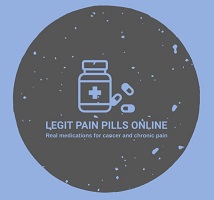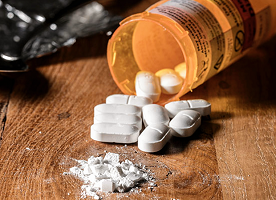COVID effects on opioid addictions
COVID effects on opioid addictions. The increase in opioid overdose deaths (OODs) during the pandemic has been attributed to various factors: reduced access to interventions, increased levels of stress due to isolation and loss of mental health support, and changes in the types/combinations and purity of drugs and patterns of drug use.
While the COVID-19 pandemic is undeniably the largest health crisis facing the global community at this time, it has not erased those crises that existed before the pandemic began. The opioid crisis in particular continues to affect millions of lives across the country and has even been exacerbated by the pandemic.
This crisis dates back to the late 1990s, when misinformation led healthcare providers to prescribe opioid pain relievers at higher rates, resulting in the widespread misuse of both prescription and nonprescription opioids. Although prescription practices have changed, the misuse of these drugs persists.
In 2018 alone, 10.3 million people misused prescription opioids and 2 million people had an opioid use disorder. Between 1999 and 2018, nearly 450,000 people died from an overdose involving an opioid, including both prescription and illicit opioids.
As the COVID-19 pandemic rages on, so does the nation’s battle with substance use. Recent data indicates that the current pandemic could contribute to 75,000 additional deaths from alcohol, drug misuse, and suicide, and many argue that this estimate is undeniably low.
Labeled “deaths of despair,” these casualties are intimately tied to the job loss, uncertainty, and isolation that prevail as a result of the pandemic, highlighting the impact the coronavirus has on mental health and substance use disorders.
COVID’s Impact on Mental Health. The relationship between COVID-19 and mental health is at the forefront of many recent health discussions. In a poll conducted last July, 53% of U.S. adults surveyed said that stress and worry related to the pandemic has harmed their mental health. This percentage has climbed significantly since the poll was first conducted in March, when only 32% of respondents voiced concern.
Epidemics have been shown to induce stress across populations as a result of social isolation, loneliness, job loss, and income insecurity, all of which can contribute to depression, anxiety, and low self-esteem. When paired with high levels of fear and uncertainty, these unprecedented times create a toxic culmination of circumstances that can lead to new mental health challenges and exacerbate existing ones.
Unfortunately, more mental health conditions due to the coronavirus also means more substance use disorders. In fact, more than one in every four adults with a serious mental health condition also has a substance use disorder. How much does lsd sell for?
LSD research chemicals for sale
LSD research chemicals for sale. Psychedelics are a subclass of hallucinogenic drugs whose primary effect is to trigger non-ordinary mental states (known as psychedelic experiences or psychedelic “trips”) and/or an apparent expansion of consciousness. COVID effects on opioid addictions,LSD research chemicals for sale,LSD research chemicals,research chemicals for sale,opioid addictions.
Sometimes, they are called classic hallucinogens, serotonergic hallucinogens, or serotonergic psychedelics, and the term psychedelic is sometimes used more broadly to include various types of hallucinogens or those which are atypical or adjacent to psychedelia such as MDMA or cannabis; this article uses the narrower definition of psychedelics.
True psychedelics cause specific psychological, visual, and auditory changes, and oftentimes a substantially altered state of consciousness. Psychedelic states are often compared to meditative, psychodynamic or transcendental types of alterations of mind.
The “classical” psychedelics, the psychedelics with the largest scientific and cultural influence, are mescaline, LSD, psilocybin, and DMT. LSD in particular has long been considered the paradigmatic psychedelic compound, to which all other psychedelics are often or usually compared.

